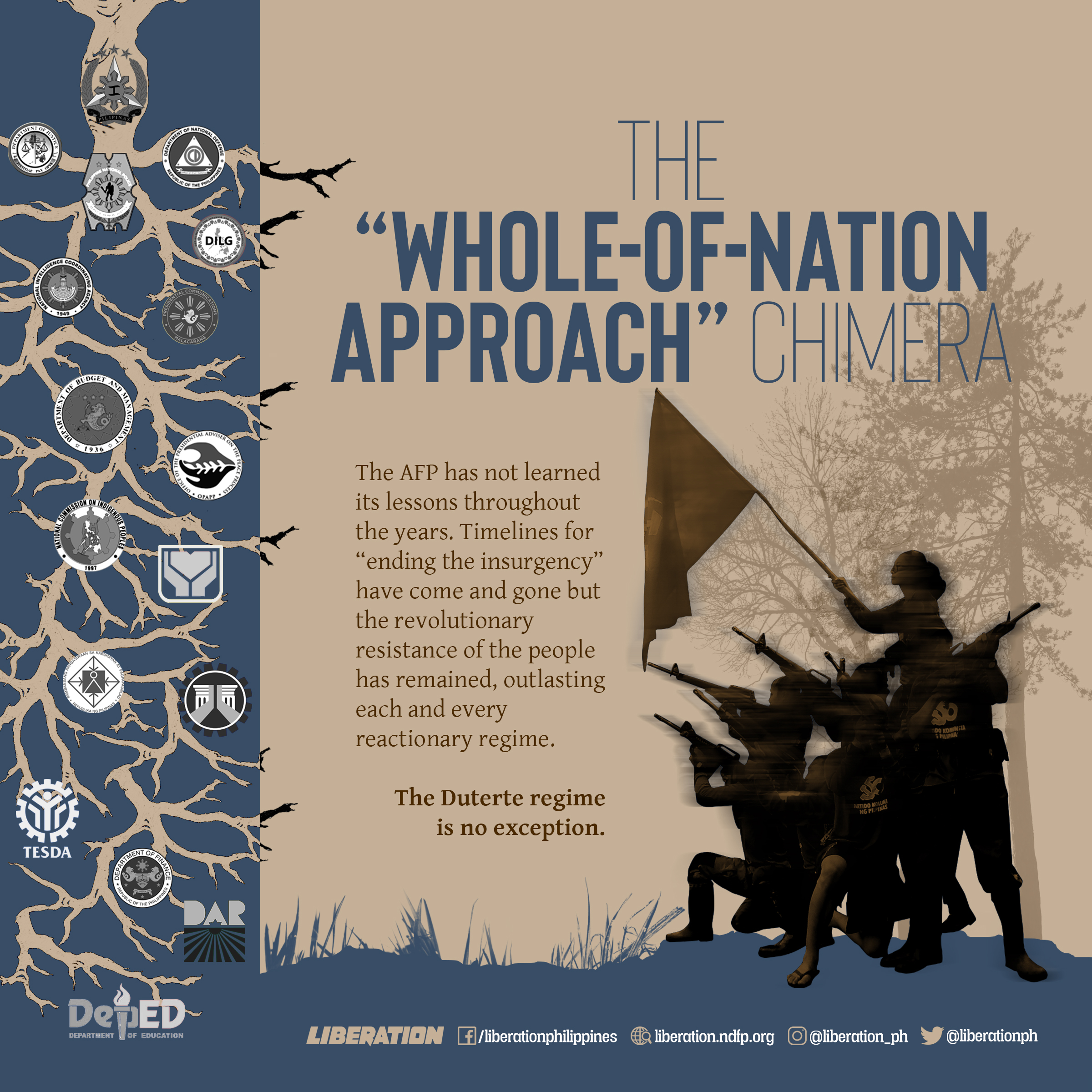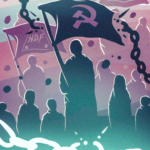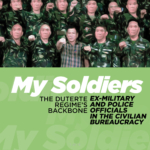The “Whole-of-Nation Approach” Chimera

In mid-November last year, President Duterte expressed openness to meet with two leading NDFP negotiating panel members about resuming the formal peace talks that, for the nth time, he had arbitrarily cancelled in July. But his military/security advisers gruffly scuttled that meeting, impelling the NDFP peacemakers—Fidel Agcaoili and Luis Jalandoni—to cancel their trip. Reason: the security advisers threatened to arrest them should they come to Manila.
That incident demonstrated how easily the internal-security cabal in the Duterte cabinet could interdict and frustrate their president and commander-in-chief whenever he gets sober-minded as to consider returning to the negotiating table with the NDFP under The Hague Joint Declaration of 1992. They induced him to endorse their previously repudiated “localized” peace talks, which, not at all surprising, have been totally ignored by all local commands of the revolutionary movement.
On December 4, the internal-security cabal succeeded in inducing Duterte to put his imprimatur on their magnum opus, which spokespersons twice mentioned the AFP would recommend while drumbeating the ludicrous “Red October” Duterte-ouster canard: Executive Order No. 70.
Published in the Official Gazette on December 10 (its date of effectivity), EO 70 is pompously titled, “Institutionalizing the whole-of-nation approach in attaining inclusive and sustainable peace, creating a National Task Force to end local communist armed conflict, and directing the adoption of a National Peace Framework.”
EO 70 claims that the whole-of-nation approach (WONA) “addresses the root causes of insurgencies, internal disturbances and tensions, and other armed conflicts and threats.” How? “(B)y prioritizing and harmonizing the delivery of basic social services and social development packages by the government, facilitating societal inclusivity, and ensuring active participation of all sectors of the society in the pursuit of the country’s peace agenda.”
To serve as an “efficient mechanism and structure” for implementing the WONA, the National Task Force (NTF) was created, headed by President Duterte as chair, with his national security adviser (Hermogenes Esperon Jr.) as vice-chair. NTF members are ranking officials of the following departments: Internal and Local Government, Justice, National Defense, Public Works, Budget, Finance, Agrarian Reform, Social Welfare, Education, Economic Development, Intelligence, TESDA, Presidential Adviser for the Peace Process; plus the presidential assistant for indigenous peoples concerns, NCIP chair, AFP chief, PNP chief, PCOO secretary and two private sector representatives.
Within six months from the EO issuance, the NTF is mandated to formulate a WONA-driven National Peace Framework (NPF) and start to implement it, “in coordination with relevant national government agencies, LGUs, civil society, and other stakeholders.” It must ensure “inter-agency convergence” in implementing the NPF in “conflict-affected and vulnerable communities.”
It calls for enlisting the aid of any department, bureau, office, agency, or instrumentality of government, including LGUs, government-owned and controlled corporations (GOCCs), and state universities and colleges (SUCs), in accordance with their respective mandates.
In short, it calls for a whole-of-government orchestration.
To fulfill its mandate, the NTF shall organize “adhoc inter-agency and multisectoral clusters, councils, committees, and groups in the national, regional and local levels whenever necessary.” It shall also develop and foster “strategic communication, advocacy, and peace-constituency plans in case of a ceasefire” plus capacity-building measures “to enable local chief executives [governors and mayors] and local peace bodies to engage and facilitate local peace engagements or negotiations/interventions.”
Specifically, EO 70 mandates the NTF to recommend to the OPAPP “projects and conflict-affected areas” where the Payapa at Masaganang Pamayanan (Pamana) program—a multi-billion counterinsurgency project, initiated under the preceding Aquino III administration, which has engendered corruption in the OPAPP—may be implemented.
A National Secretariat was to be set up to provide technical and administrative support to the NTF and ensure all policies, directives, plans and programs formulated by the NTF are faithfully carried out.
The National Peace Framework shall contain “principles, policies, plans, and programs (4Ps)” that will bring “inclusive and sustainable peace, and address the root causes of insurgencies, internal disturbances and tensions as well as other armed conflicts and threats in identified areas.” It shall be consistent with constitutional integrity [in accord with the Constitution] and national sovereignty,” the EO stresses, and “responsive to local needs and sensitive to realities on the ground.”
Further, it shall include a “mechanism for localized peace engagements or negotiations and interventions that is nationally orchestrated, directed and supervised, while being locally implemented.”
The NTF-NPF concept is essentially derived from the 2009 US Counterinsurgency Guide, which was applied in the US wars on Afghanistan and Iraq but failed. The AFP initially adopted it in the Aquino III regime’s Oplan Bayanihan (which the Duterte regime cursorily pursues through its Oplan Kapayapaan). Its “whole-of-nation approach” sought to bring together all public and private sectors to crush the revolutionary movement, first in 2013 then in 2016—and utterly failed.
Under the current regime, the AFP first set an over-ambitious, impossible timeline: to “end the insurgency” by mid-2019, which Duterte himself publicly announced. The fascist machinery—with almost 70 retired AFP and PNP generals/officers holding top positions in the government—is now set to push the AFP’s magnum opus, aimed to end the insurgency by 2022.
This appears to be a dream-come-true for the militarists/fascists. They can lord over the various inter-agency clusters and other formations lined up in EO 70. Indeed, they can weaponize all government functions and services, including judicial and political processes, to attack the revolutionary movement and all those they perceive as threats and “enemies of the state.”
And while doing that, the AFP wants the public to believe that the entire nation is up against “communist insurgency” and that the AFP—with its egregious record of human rights violations through a succession of governments, including the incumbent—enjoys the whole-hearted support of the people.
But what EO 70 truly shows is that—with President Duterte ever comformable with and protective of them—the state security forces can obligate all civilian agencies of the state, all local government units, non-government organizations and all other stakeholders such as business, church, schools and various professions to take part in this grand plot.
All told, the AFP has not learned its lessons throughout the years. Timelines for “ending the insurgency” have come and gone but the revolutionary resistance of the people has remained, outlasting each and every reactionary regime. The Duterte regime is no exception.



